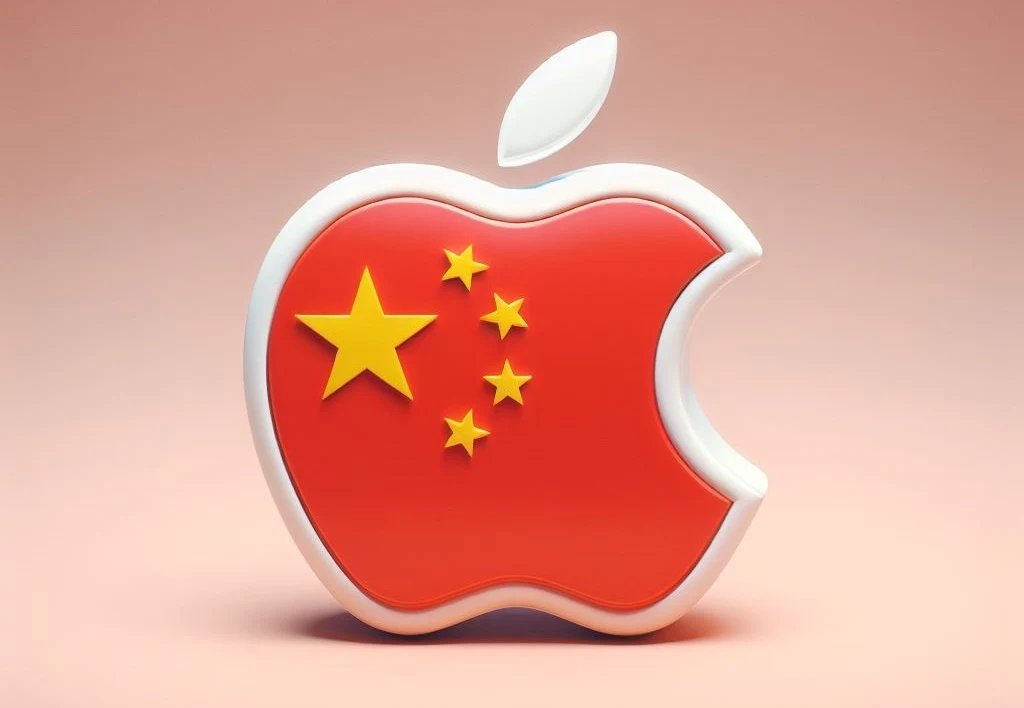Apple has just made a game-changing move in China—teaming up with Alibaba Cloud to power its AI features on iPhones. But this isn’t just a tech update; it’s a strategic play to comply with China’s rigorous data regulations. Outside of China, Apple relies on OpenAI and in-house models for AI-driven innovations, but the Chinese market comes with its own set of rules.
So, why Alibaba? It’s simple: China demands foreign companies to partner with local cloud providers.
But here’s the real question: Can Apple, a company that’s built its empire on privacy, really trust a local tech giant like Alibaba, especially in the midst of China’s tightening grip on data?
In a market with over 950 million mobile users, China’s AI race is fierce, and Apple can’t afford to miss the wave. This partnership could either bolster its foothold in Asia or turn into a major privacy compromise. Apple needs to act fast and cautiously.
Mastering China’s Complex Regulations
China’s data protection laws are some of the most stringent in the world. The country’s Cybersecurity Law (2017) forces companies to store user data locally, with strict oversight by the Chinese government.Apple is partnering with Alibaba Cloud to comply with China’s Data Security Law, which requires foreign companies to process data through local providers. Joe Tsai, Chairman of Alibaba, confirmed the partnership, emphasizing Apple’s deliberate choice of Alibaba over other local tech firms. This move ensures that AI services like Siri and real-time translations remain operational without regulatory roadblocks.
China’s Data Security Law, in effect since September 1, 2021, mandates that all data collected within China be stored and processed locally. By working with Alibaba, Apple stays compliant and keeps its AI-powered features running smoothly for Chinese users.
Regulatory compliance isn’t just a legal hurdle, it’s key to Apple’s survival in China. By leveraging Alibaba’s cloud infrastructure, Apple ensures its AI-driven features, like personalized voice assistants and predictive tools, stay competitive in a market that thrives on innovation. Without this partnership, Apple risks losing ground in an AI-driven future. In essence, this partnership isn’t just a regulatory requirement it’s a strategic maneuver to ensure that Apple stays relevant in the fiercely competitive Chinese tech landscape.

Data, Dollars, and Dilemmas: Apple’s High-Stakes Gamble in China
Apple’s privacy-first image has been one of its most important selling points globally. But this new partnership with Alibaba forces Apple to tread carefully. Alibaba Cloud promises state-of-the-art security, but China’s cybersecurity laws still demand local firms give the government access to user data when required. Here’s the burning question: How much control will Apple truly have over its data?
In a country with rising geopolitical tensions, particularly between the U.S. and China, Apple’s decision to partner with a Chinese company may raise eyebrows. The privacy vs. market access debate will likely intensify. Apple could find itself under fire from privacy advocates who believe the company is compromising its core values for the sake of profit. The stakes are high. Can Apple maintain its privacy commitment while navigating the increasingly murky waters of China’s tech ecosystem?
This tension between global privacy standards and local regulatory compliance is something Apple must continually navigate. The company’s future in China and perhaps even its reputation globally may hinge on its ability to balance these two conflicting priorities. If Apple can continue to deliver on its privacy promises while working within China’s laws, it could set a precedent for multinational companies facing similar challenges worldwide.
But the question remains: Will this delicate balance hold, or will Apple’s commitment to privacy ultimately be compromised?
Beating Huawei: Is Apple Keeping Up in China?
Here’s where things get interesting. While Apple’s partnership with Alibaba solves its regulatory problems, it also puts the company head-to-head with Huawei—China’s biggest homegrown tech giant. Huawei has already established itself as a leader in AI and cloud technology in China, and its smartphones powered by AI have a growing user base. Apple can’t afford to sit on its laurels. To keep up, it needs to push out AI innovations that rival Huawei’s, and fast.
Thanks to Alibaba, Apple can leverage advanced cloud services to deliver powerful AI functionalities like smart recommendations and advanced voice assistants. But there’s a danger: Alibaba itself is growing into a powerhouse in cloud and AI technology. Will it become a direct competitor to Apple in the long run? Apple’s survival in China may depend on how well it can outpace not only Huawei but also Alibaba’s growing influence in the AI space. Can Apple stay ahead, or will Alibaba emerge as a new, formidable rival?
Apple’s relationship with Alibaba Cloud could evolve into something much more significant than a simple regulatory solution. As Alibaba strengthens its position in AI, Apple’s continued reliance on their infrastructure could potentially create a situation of dependency that might limit Apple’s options in the long run. This partnership isn’t just about now; it’s about securing Apple’s future in a market where local players are quickly catching up.
The AI Crossroads: Can Apple’s Privacy-Centric Bet Redefine the Game?
Apple’s strategy isn’t just about chipsets or algorithms it’s a philosophical wager on the future of technology itself. While rivals build sprawling, data-hungry empires in the cloud, Apple stakes its claim on a quieter revolution: intelligence that lives in your palm, not in the ether. The allure is undeniable,a world where your phone learns without leaching, adapts without surveilling, and empowers without compromising. But the shadows loom. With the smartphone market fraying and competitors pouring $320 billion into the AI arms race, Apple’s insistence on restraint could either become its masterstroke or its downfall.
Will users trade the boundless possibilities of cloud-powered AI for the sanctity of privacy? Can Siri’s whispered intuition rival the thunderous might of ChatGPT? The answers lie in a paradox only Apple could test: that in an age of excess, less might just be more. If this gamble pays off, the iPhone could become not just a device, but a covenant, a promise that innovation doesn’t have to cost autonomy. But if it falters, even the sheen of a titanium frame won’t hide a company struggling to keep up with the future it once defined.
The Future of AI: Apple’s Global Strategy Unfolding
Apple’s decision to partner with Alibaba could be the catalyst for a new era in AI-powered devices. In the short term, it solves the compliance issue with China’s strict laws. But will it come at the cost of Apple’s privacy-first identity?
Apple’s next AI moves will likely include integrating more advanced machine learning capabilities into iOS, offering real-time speech recognition and smarter predictive text. As Apple refines its AI technology, it must stay aligned with its privacy principles. As it increasingly moves toward on-device AI, the question is no longer if Apple can maintain its privacy stance, but how soon it will be able to make this shift globally.
As Apple adapts to China’s regulatory framework, it’s clear that AI development will become increasingly fragmented. Apple’s ability to balance local regulations and global consistency will determine its long-term success. The future of Apple’s AI strategy depends on how well it can juggle privacy, compliance, and market competition and whether it can truly stay ahead of competitors like Huawei and Alibaba in AI innovation. Apple’s next move could shape the future of AI in the global market.
What’s Next? Apple’s Global Tightrope
Apple’s partnership with Alibaba Cloud is more than a regulatory nod, it’s a high-stakes tango between global ambition and local realities. By embracing China’s cloud giant, Apple walks a razor’s edge: appeasing regulators while guarding its hallowed privacy vows. But this dance risks unraveling its narrative. Can a company famed for “what happens on your iPhone, stays on your iPhone” reconcile alliances with entities bound by state mandates? The answer will shape not just its foothold in China but its credibility worldwide.
Here, Apple faces its ultimate juggling act: balancing growth in a cutthroat market without dropping the principles that define its soul. The Alibaba deal isn’t just a compliance footnote—it’s a litmus test for whether privacy can thrive in a fractured, politicized tech landscape. For Apple, the future hinges not on choosing sides, but on proving its tightrope can hold.









